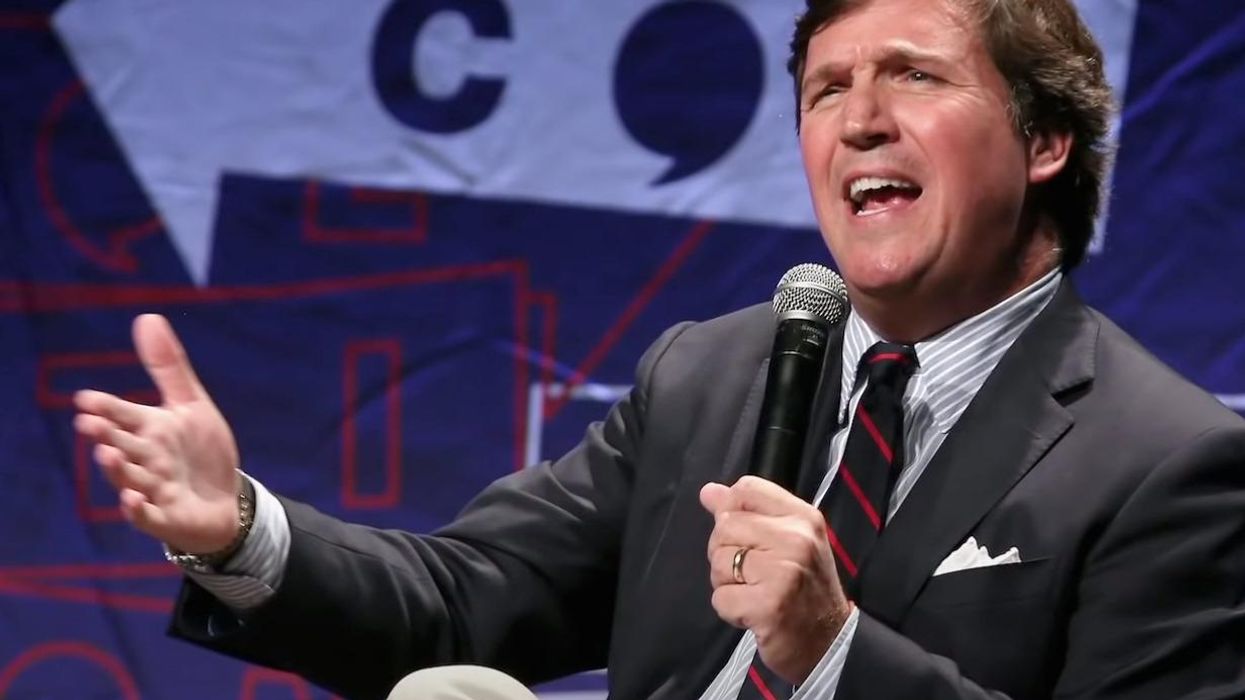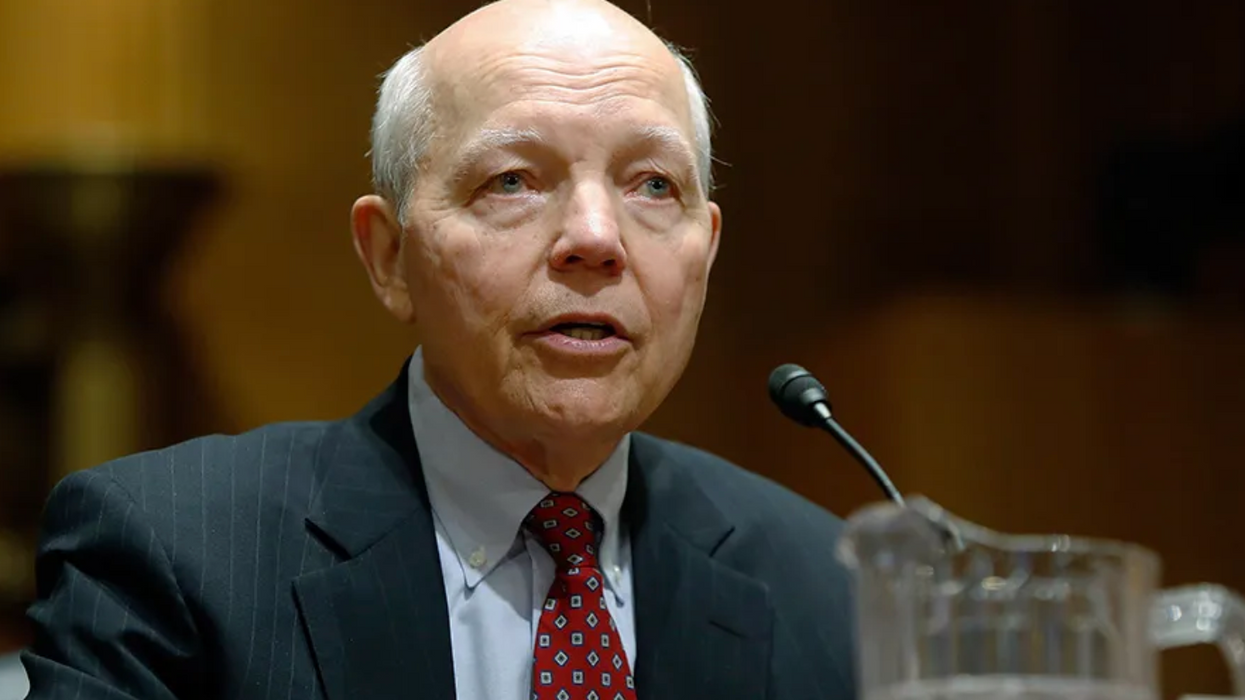Dave Nershi was finalizing a report he’d worked on for months when an ominous email appeared in his inbox.
Nershi had worked as a general engineer for the Internal Revenue Service for about nine months. He was one of hundreds of specialists inside the IRS who used their technical expertise — Nershi’s background is in chemical and nuclear engineering — to audit byzantine tax returns filed by large corporations and wealthy individuals. Until recently, the IRS had a shortage of these experts, and many complex tax returns went unscrutinized. With the help of people like Nershi, the IRS could recoup millions and sometimes more than a billion dollars on a single tax return.
But on February 20, three months shy of finishing his probationary period and becoming a full-time employee, the IRS fired him. As a Navy veteran, Nershi loved working in public service and had hoped he might be spared from any mass firings. The unsigned email said he’d been fired for performance, even though he had received high marks from his manager.
As for the report he was finalizing, it would have probably recouped many times more than the low-six-figure salary he earned. The report would now go unfinished.
Nershi agreed that the federal government could be more lean and efficient, but he was befuddled by the decision to fire scores of highly skilled IRS specialists like him who, even by the logic of Elon Musk’s Department of Government Efficiency initiative, were an asset to the government. “By firing us, you’re going to cut down on how much revenue the country brings in,” Nershi said in an interview. “This was not about saving money.”
Since taking office, President Donald Trump and his billionaire top adviser Musk have launched an all-out blitz to cut costs and shrink the federal government. Trump, Musk and other administration leaders not only say the U.S. government is bloated and inefficient, but they also see it as a bastion of political opposition, calling it the “deep state.”
The strategy used by the Trump administration to reduce the size of government has been indiscriminate and far-reaching, meant to oust civil servants as fast as possible in as many agencies as possible while demoralizing the workers that remain on the job. As Russell Vought, director of the Trump White House’s Office of Management and Budget and an architect of Project 2025, put it in a speech first reported by ProPublica and Documented: “We want the bureaucrats to be traumatically affected. When they wake up in the morning, we want them to not want to go to work because they are increasingly viewed as the villains.”
One tactic used by the administration is to target probationary workers who are easier to fire because they have fewer civil service protections. Probationary, in this context, means only that the employees are new to their roles, not that they’re newbies or underperformers. ProPublica found that the latest IRS firings swept up highly skilled and experienced probationary workers who had recently joined the government or had moved to a new position from a different agency.
In late February, the Trump administration began firing more than 6,000 IRS employees. The agency has been hit especially hard, current and former employees said, because it spent 2023 preparing to hire thousands of new enforcement and customer service personnel and had only started hiring and training those workers at any scale in 2024, meaning many of those new employees were still in their probationary period. Nershi was hired as part of this wave, in the spring of last year. The boost came after Congress had underfunded the agency for much of the past decade, which led to chronic staffing shortages, dismal customer service, and plummeting audit rates, especially for taxpayers who earned $500,000 or more a year.
The administration doesn’t appear to want to stop there. It is drafting plans to cut its entire workforce in half, according to reports.
Unlike with other federal agencies, cutting the IRS means the government collects less money and finds fewer tax abuses. Economic studies have shown that for every dollar spent by the IRS, the agency returns between $5 and $12, depending on how much income the taxpayer declared. A 2024 report by the nonpartisan Government Accountability Office found that the IRS found savings of $13,000 for every additional hour spent auditing the tax returns of very wealthy taxpayers — a return on investment that “would leave Wall Street hedge fund managers drooling,” in the words of the Institute on Taxation and Economic Policy.
John Koskinen, who led the IRS from 2013 to 2017, said in an interview that the widespread cuts to the IRS make no sense if Trump and Musk genuinely care about fiscal responsibility and rooting out waste, fraud and abuse. “What I’ve never understood is if you’re interested in the deficit and curbing it, why would you cut back on the revenue side?” Koskinen said.
Neither the IRS nor the White House responded to requests for comment. Last month, Musk asked his followers on X, the platform he owns, whether they would “like @DOGE to audit the IRS,” referring to the U.S. DOGE Service team of lawyers and engineers led by him. DOGE employees have sought to gain access to IRS taxpayer data in an attempt to “shine a light on the fraud,” according to a White House spokesman.
For this story, ProPublica interviewed more than a dozen current and former IRS employees. Most of those people worked in the agency’s Large Business and International (LB&I) division, which audits companies with more than $10 million in assets and high-income individuals. Within the IRS, the LB&I division has the highest return on investment, and the widespread cuts there put in stark relief the human and financial cost of the Trump administration’s approach to slashing government functions in the name of saving money and combating waste and fraud.
According to current and former LB&I employees, the taxpayers they audited included pharmaceutical companies, oil and gas companies, construction firms and major technology corporations, as well as more obscure private corporations and high-net-worth individuals. None of the IRS employees who spoke to ProPublica would disclose specific taxpayer information, citing privacy laws.
With the recent influx in funding, employees said, the leadership of LB&I had pushed to hire not only more revenue agents and appraisers but also specialized employees such as petroleum engineers, computer scientists and experts in corporate partnerships. These employees, usually known internally as general engineers, consulted on complicated tax returns and helped determine whether taxpayers properly claimed certain credits or other tax breaks.
This work happened in cases where major companies claimed a hefty research tax credit, which is a legitimate avenue for seeking tax relief but can also be improperly used. Highly skilled appraisers have also recouped huge savings in cases involving notorious tax schemes, such as what’s known as a syndicated conservation easement — a break abused so often that both congressional Democrats and Republicans have criticized it, while the IRS has included it on its list of the “Dirty Dozen” tax scams.
“These are cases where revenue agents don't have the technical expertise,” said one IRS engineer who is still employed at the agency and who, like other IRS employees, wasn’t authorized to speak to the media. “That’s what we do. We are working on things where expertise is absolutely necessary.”
Current and former IRS employees told ProPublica that the agency had expended a huge amount of resources to recruit and train new specialists in recent years. Vanessa Rollins, an engineer in the IRS’ Chicago office who was recently fired, said probationary employees in LB&I outnumbered full-time staffers in her office. Much of her team’s work centered on training and mentorship for the waves of new employees — most of whom were recently fired. “The entire office had been oriented around bringing us in and getting us trained,” Rollins said.
These specialists said they earned higher salaries compared with many other IRS employees. But the money these specialists recouped as a result of their work was orders of magnitude greater than what they cost. The current engineer told ProPublica that they estimated their team of less than 10 people had brought in $5 billion in adjusted tax returns over the past four years. (By contrast, aWall Street Journal analysis published on February 22 found that DOGE had found savings of $2.6 billion over the next year, far less than the $55 billion claimed by DOGE itself.)
A former LB&I revenue agent added that their work didn’t always lead to the IRS recouping money from a taxpayer; sometimes, they audited a return only to find that the taxpayer was owed more money than they had expected.
“The IRS’ mission is to treat taxpayers fairly so they pay the tax they legally owe, including making sure they’re not paying any more than legally required,” the former revenue agent said.
Notwithstanding its return on investment and the sense of duty espoused by its employees, LB&I was hit especially hard by the most recent wave of firings, employees said. According to the current IRS engineer, the Trump administration appears to have eliminated the jobs of about 120 LB&I engineers out of a total of roughly 260. The person said they had heard more terminations were expected soon. The acting IRS chief and a longtime agency leader, Doug O’Donnell, announced his retirement amid the firings.
Several LB&I employees told ProPublica that the mass layoffs had been ordered from a very high level and that several layers of managers had no idea they were coming or what to expect. The cuts, employees said, did not appear to distinguish between employees with certain specialties or performance levels, but instead focused solely on whether they were on probationary status. “It didn't matter the skill set. If they were under a year, they got cut,” another current LB&I employee told ProPublica.
The current and former IRS employees said the firings and the administration’s deferred resignation offer led to situations that have wiped out decades of experience and institutional knowledge that can’t easily be replaced. Jack McCumber was an LB&I senior appraiser in Seattle who got fired about six weeks before the end of his probationary status. He said not only did he lose his job, but the veteran appraiser who was his mentor took early retirement. McCumber and his mentor often worked on syndicated conservative easement cases that could recoup tens and even hundreds of millions of dollars. “They’re pushing out the experienced people, and they’re pushing out people like me,” McCumber said. “It’s a double whammy.”
The result, employees and experts said, will mean corporations and wealthy individuals face far less scrutiny when they file their tax returns, leading to more risk-taking and less money flowing into the U.S. treasury.
“Large businesses and higher-wealth individuals are where you have the most sophisticated taxpayers and the most sophisticated tax preparers and lawyers who are attuned to pushing the envelope as much as they can,” said Koskinen, the former IRS commissioner. “When those audits stop because there isn't anybody to do them, people will say, ‘Hey, I did that last year, I'll do it again this year.’”
“When you hamstring the IRS,” Koskinen added. “it’s just a tax cut for tax cheats.”
ProPublica is a nonprofit newsroom that investigates abuses of power. Sign up to receive our biggest stories as soon as they’re published.
Reprinted with permission from ProPublica












